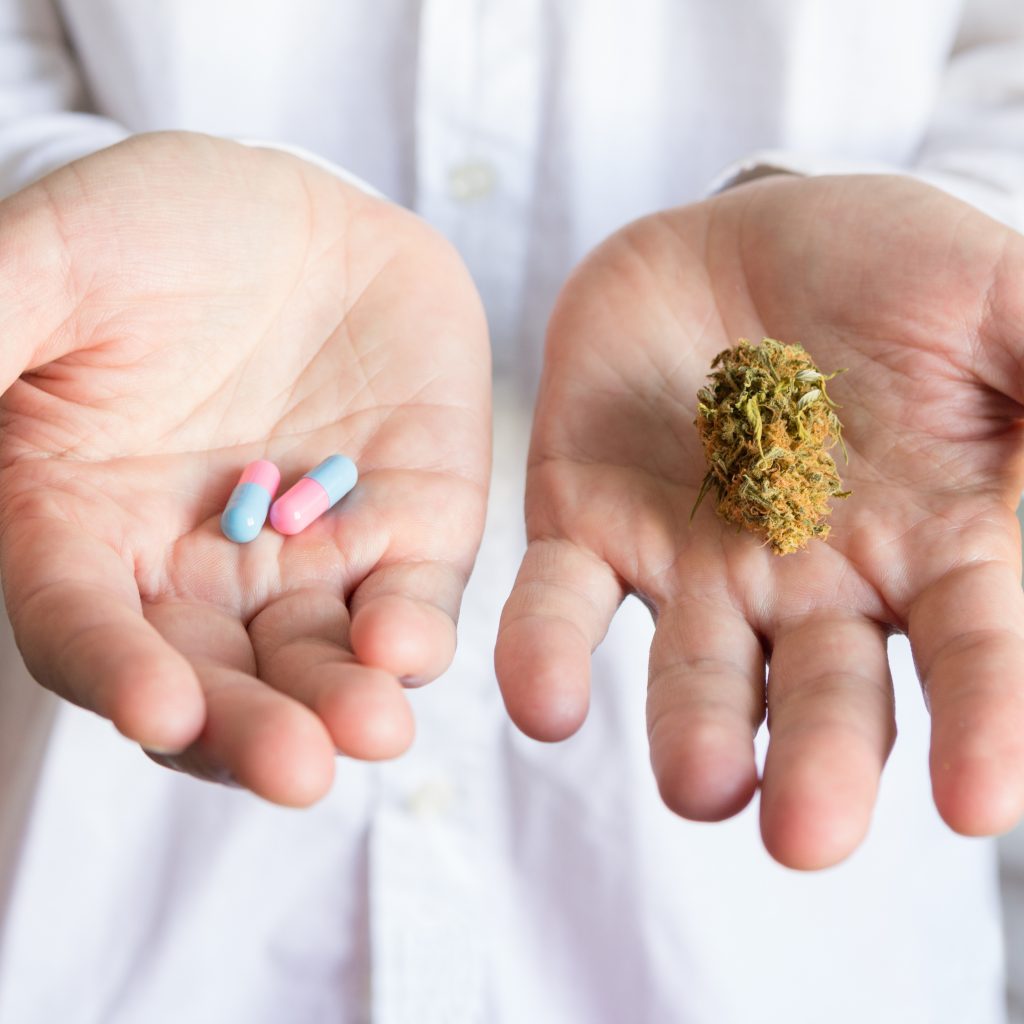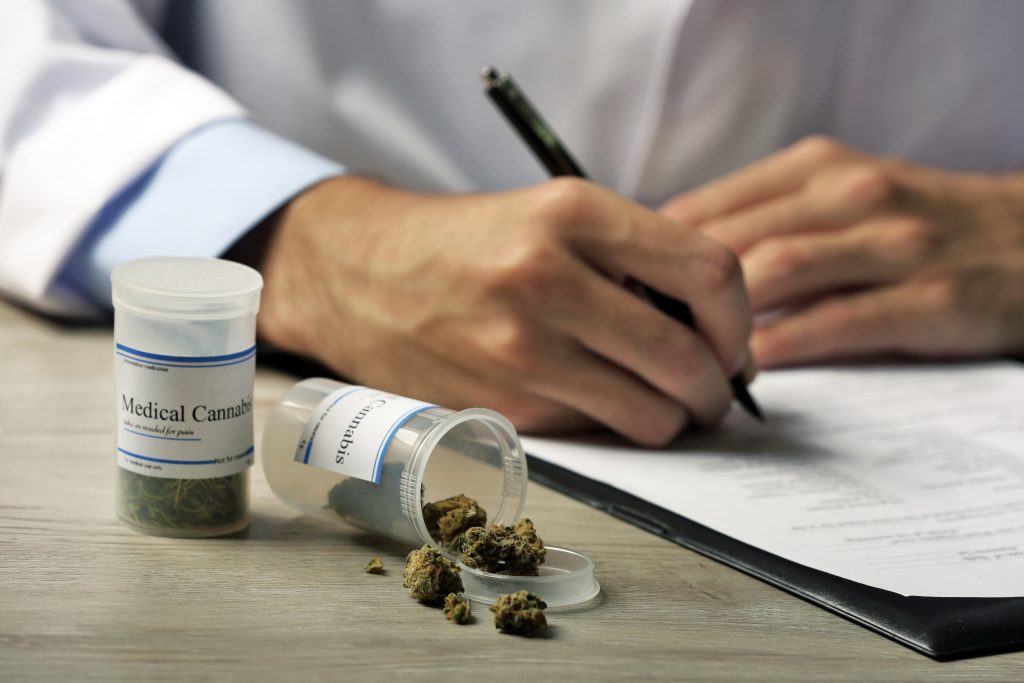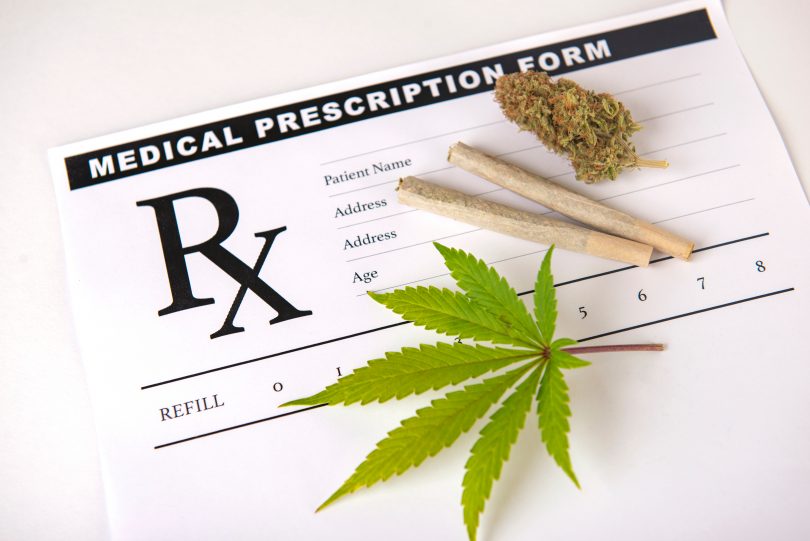The concept of getting a medical cannabis card seems like a fairly straight-forward process for the most part; you contact a physician or licensed medical cannabis doctor in your area, schedule an appointment, and once approved, you receive some type of documentation that allows you to buy cannabis. As simple as that should be, a growing number of unscrupulous doctors (or in some cases, fake doctors altogether) are taking advantage of consumers and charging hundreds of dollars for counterfeit, invalid, or otherwise unusable medical cannabis recommendations.
As much as we all love cannabis and wholeheartedly support the legal industry, no one can deny that there can be some shady dealings going on in the shadows. But such is the case in any multi-billion-dollar industry, unfortunately. As a consumer in today’s world, it is very important to do your due diligence before trusting a company and buying a product, and that applies when getting a medical cannabis card as well. For more articles like this one and exclusive deals on legal THC products, make sure to subscribe to The THC Weekly Newsletter. Also save big on HHC-O, Delta 8, Delta 9 THC, Delta-10 THC, THCO, THCV, THCP & HHC products by checking out our “Best-of” lists!
Getting a medical cannabis card
A medical cannabis card (or medical cannabis recommendation, as they’re often referred to), are state-issued identification documents that confirm the person carrying them has a medical condition that enables them to legally purchase, possess, and use cannabis. As regulations change and medical markets explode, the idea of paying for a medical card may seem obsolete, but there are some benefits carrying one still.
Take California, for instance, where cannabis is in fact completely legal, but as a recreational customer, you’re stuck paying up to 45% in recreational, cultivation, excise, and local taxes. Plus, your purchases are limited to one ounce of flower and eight grams of concentrate. Patients with a doctor’s recommendation can possess up to 8 ounces, or 226.8 grams, of dried cannabis or concentrates, and they’re exempt from paying all the extra taxes.
The qualifying conditions vary from state to state, and can also be at the discretion of the recommending physician. Ordinarily, the card will be valid for up to 12 months, at which point you will need to schedule a follow-up appointment for another evaluation. It used to be that you had to do a lot of searching and often, quite a bit of driving, to find a “marijuana doctor” who was willing to write these recommendations, but now, everything can be done remotely.
The process for getting a medical cannabis card can vary a bit from state to state, but overall, it’s pretty similar across the board. You can apply your through state’s medical cannabis registry and try find a physician who is willing to write you a recommendation, which can be tricky since most doctors are prohibited from prescribing or even suggesting cannabis. Or, you could pay a third-party company to do it for you. The latter can be equally complicated, because, although some companies are legit, professional, and affordable, others will issue a fake or invalid medical card at exorbitant prices.
Counterfeits running rampant
All over the country, especially in newly established markets, the issue of counterfeit, invalid, or improperly processed medical cannabis recommendations is coming up with more regularity. In Missouri, for example, an investigation was launched after it was determined that hopeful patients were purchasing recommendations with unauthorized signatures, meaning they were not signed by legal physicians.
“It was a person/people impersonating a doctor,” Department of Health and Senior Services spokesperson Lisa Cox told the News-Leader in a text message. She said some 600 patients were affected, and that the department could not comment on who was being impersonated. Additionally, many were scammed by doctors who took their money but did not complete the approval process for their patients.

A 30-year-old retired military veteran, Alex Griffith, was among those who fell victim to a shady, unprofessional doctor. “Marijuana helps me control my condition way better than Prozac and all those other pills doctors want to give you,” said Griffith, uses it to manage his depression and suicidal thoughts.
After paying $220 dollars for a one-page recommendation letter he got from Dr. Trent Austin, an emergency medicine doctor in Batesville, Ind., who’s also licensed in Ohio, Griffith has yet to receive his medical cannabis card. The problem? The recommendation he received does not stand alone, and patients need to submit their information and register with the Ohio Board of Pharmacy.
“At some level, they’re fooling people into believing they have something that they don’t,” said Dr. William Sawyer, a Sharonville family physician and one of about 300 doctors certified by the state to recommend medical marijuana, referring to the confusion between a recommendation letters and actual ID cards in some states. “It’s unfortunate that that’s happening because it creates problems for us who are doing it correctly.”
How to avoid getting ripped off
Since it’s so easy to get scammed in today’s digitalized world, it’s important to safeguard your interests to make sure you don’t get scammed. Below are some ways to know if your medical marijuana doctor is legit;
Use a Registry
This won’t apply in all states, because not all have an organized system in place for tracking weed doctors, but if it’s possible, use a registry. Florida is a good example of this. In Florida, you can find a real-time database that regularly updates and keeps track of every doctor in the state that is certified as a medical cannabis doctor, or is authorized to approve patient applications.
Referrals
If you live somewhere with a well-established and robust medical cannabis program, it’s highly likely that someone you know has a card already. If you have a friend that has a recommendation and is successfully shopping at dispensaries with it, then it would be in your best benefit to ask them where they bought it from. If you don’t know anybody with a medical card, then looking online for a well-known company, like getnugg, is another option. You can also ask for referrals and read what other people think about your preferred doctor from the Marijuanadoctors.com review.
Price
Price can sometimes be an indicator of fakes, but this is a tricky one because it varies a lot. You’ll need to know the average costs in your area to be able to determine if a price being thrown at you is off the mark. In California, a medical cannabis card is much less expensive than in Ohio. Overall, the prices range from $40 to $200, anything less or more than that may be a red flag.

Final thoughts
In any industry, the ability to get scammed exists. Even in completely legal ones. You will always need to do your due diligence to make sure you’re receiving the product you paid for and not getting ripped off. Follow our advice above, ask around, and don’t waste your money on a worthless recommendation.
Hello to everyone..! Thanks for dropping by CBDtesters.co, the #1 internet source for cannabis and psychedelics-related news, offering up current and relevant stories from the industry today. Join us daily to stay on top of the fast-paced universe of legal drugs and industrial hemp, and remember to sign up for The THC Weekly Newsletter, so you never miss a single thing.
Disclaimer: Hi, I’m a researcher and writer. I’m not a doctor, lawyer, or businessperson. All information in my articles is sourced and referenced, and all opinions stated are mine. I am not giving anyone advice, and though I am more than happy to discuss topics, should someone have a further question or concern, they should seek guidance from a relevant professional.









